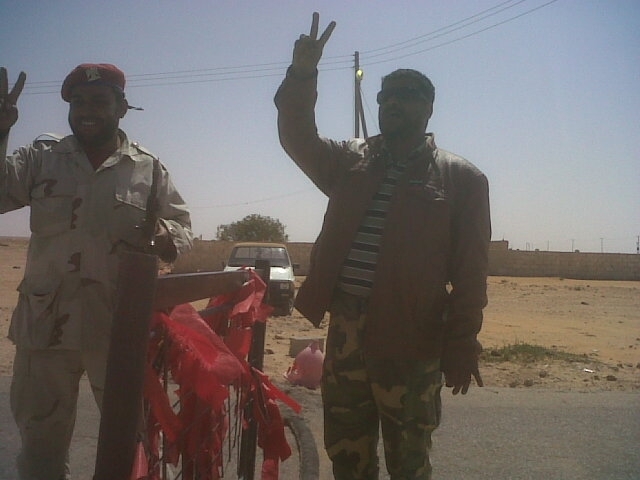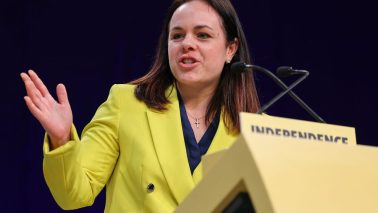
Twelve different checks later and I’m in Free Libya, hurling down the road to Tobruk at 100 mph, with Arabic music blasting away. This place is firmly held rebel territory and most journalists have moved towards the battlefields further west. A pair of beautiful American relief workers tell me just to keep going “to see real action”. They’ve just from Benghazi and are headed back to Egypt. They grab my driver.
Tobruk, though, has plenty of action for me; and I need to get back to my programme in Cairo. After all, I’m a think-tanker, not a war correspondent. I stop by the oil refinery which is beginning to run again, as is the pipeline. Next week exports will begin. Access to oil is one of the key issues in this battle and the deal the rebels have struck with Qatar to help process the oil is a crucial move.
In the once grand but now empty Hotel Al Masera, I meet members of Tobruk’s rebel committee, which now runs the city. It is an inspiring meeting. They are overjoyed to be free, they say. Unlike when I met provincial officials in Basra, who always wanted more money from the state or donors, they say they want nothing but Ghaddafi’s departure. “And institutions,” says one. “We want normal institutions”.
I’m amazed: they sound like a World Bank official’s dream. I press them. But they start listing their accomplishments: the city is well-supplied, crime low, electricity constant. Walking around the city afterwards I see they are right: it feels like a Morrocoan seaside resort. Even the goldsmith is open.
Finally one powerbroker volunteers something he wants: “We want internet access and mobile networks back up and running.” Gaddafi turned both off and only satellite phones are reliable. That has to be the most modest revolutionary goal in history; well, besides wanting to keep their hard-won freedom. They deserve both.






Comments